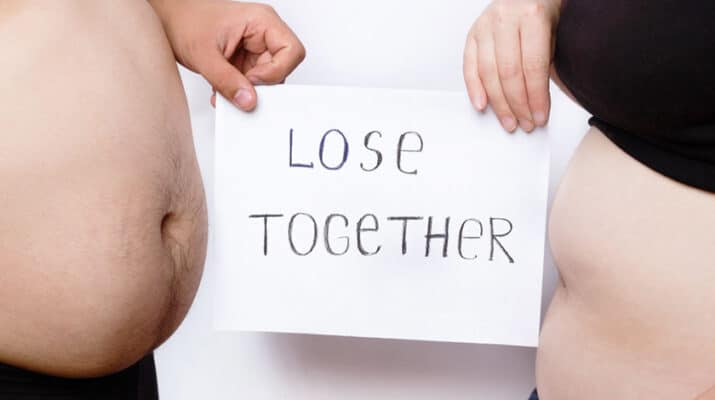By Deborah Jeanne Sergeant
A study published in August by Lotte Verweij, a registered nurse and Ph.D. student at Amsterdam University of Applied Sciences, the Netherlands, indicates that couples lose more pounds than people going alone.
Although the study of 824 patients focuses on heart attack survivors who would benefit from weight loss, smoking cessation and physical activity, the study’s most striking finding is that undertaking weight loss with a partner rather than solo works better.
“Lifestyle improvement after a heart attack is a crucial part of preventing repeat events,” said Verweij as quoted by www.sciencedaily.com. “Our study shows that when spouses join the effort to change habits, patients have a better chance of becoming healthier–particularly when it comes to losing weight.”
Those with a partner were more than twice as likely to participate in a healthful lifestyle change than those without a partner.
The finding makes sense to physician Az Tahir, who practices holistic health at Syracuse Holistic Internal & Family Medicine.
“Anything done by family together brings results and love,” Tahir said.
He said that in addition to fitness activities, eating healthful meals and engaging in stress reduction together are important as well.
“I also suggest family pray, meditate, [practice] yoga and play together,” he added.
So, what is so helpful about getting healthy together?
“This has been proven over and over again and I’ve seen it in action firsthand over my 30 years as a personal trainer,” said Randy Sabourin, team leader at MetroFitness in Syracuse. “It goes one of two ways, either the significant other supports, encourages and even participates or they work to sabotage the effort because they are unwilling to make changes to their own habits.”
When he starts with a new client, he always invites the spouse or significant other to the consultation to explain that “making healthy behavior changes is going to take a strong support system from the people you spend the most time with. You can only tough it out so long when you are drinking water and snacking on air-popped popcorn while your spouse is drinking beer and eating chips next to you. Or you are setting your alarm to get up early to go for a walk and your spouse sleeps in.”
The hassle of cooking two meals — a healthful one and a not-so-healthful one — can become a drag. But cooking a healthful meal to share with someone who wants unhealthful food can hurt the relationship.
In addition to food, the principle applies to fitness. Undertaking something painful (beginning to exercise again) is easier when someone else is with you.
If the other person is not ready to get healthy with you, you can do it on your own with a little planning.
“If your spouse is unwilling to spend ‘healthy’ time with you, I’d encourage you to find a ‘healthy’ friend to spend more time with,” Sabourin said.
Joining a group or class of like-minded people you do not know can help. That helps build in accountability and support.
It may need to be a virtual group; however, the effect is similar. Phone apps may also assist in weight loss, since they can be used to track movement, lead workouts, record calories and in a sense become more accountable.
“Eventually, the spouse should recognize that you are serious about getting healthy and taking better care of yourself,” Sabourin said. “Do this but never stop encouraging and asking your spouse to participate and suggest fun ways to be active together.”

